Queer healing in US isn’t loud, it’s layered, aching, and deeply real. It might be the most emotionally intelligent Thai GL you’ve never seen.
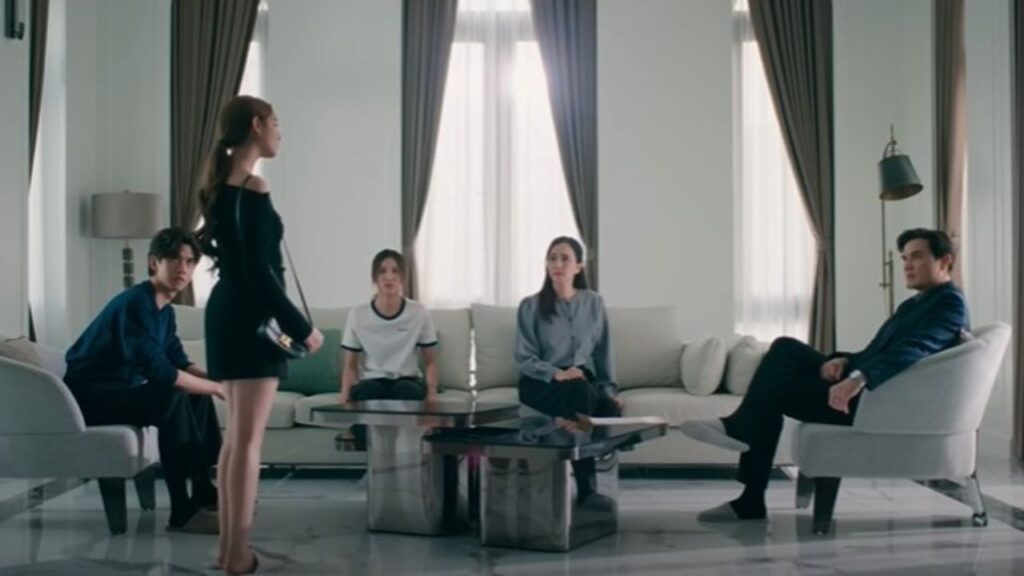
Queer healing in US does not come in the form of loud declarations or dramatic turning points. It unfolds quietly, one scene at a time, in the gentle interactions between broken people trying to hold each other without shattering further.
US is more than a love story. It is a tender exploration of what it means to grow up in a family where affection is rare, expectations are suffocating, and love often arrives wrapped in silence.
From the very first episode, US signals that its focus will not be conventional romance. Instead, it offers something deeper.
This is a story about a girl finding her voice in the space between obligation and desire. About a young woman learning how to grieve without losing herself. About siblings raised in the same house but shaped in completely different ways. Every gesture, every glance, carries the weight of something unsaid.
In this review and psychological analysis of US, we’ll explore how the series treats themes of emotional repression, sibling loyalty, loss, and autonomy. We’ll reflect on the emotional maturity of Dokrak, the layered pain of Pam, and the psychological cracks that slowly surface in Kawi and Nene.
Most of all, we’ll look at how US teaches us that healing does not always mean forgetting pain. Sometimes it means remembering gently, with someone by your side. And sometimes, it means learning that you deserve to be loved, fully, freely, and without conditions.
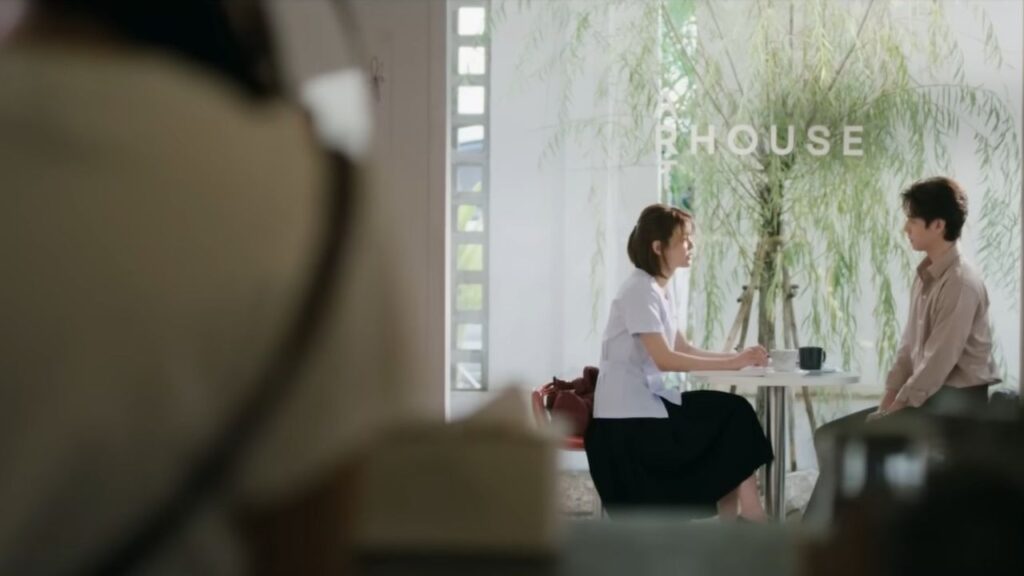
Table of Contents
- A Love Letter to Silence: The Pain of Loving Quietly
- Dokrak: The Youngest, the Wisest, the Bravest
- Not All Farewells Are Sad: Navigating Grief with Nuance
- The House That Shaped Them: Family, Trauma, and Identity
- A Rare Kind of Thai GL: No Toxicity, No Tropes, Just Truth
- Terak Is More Than Romance — It’s Family, It’s Healing, It’s Choice
- Why US Deserves Better: A Hidden Gem That Heals
- The Kind of Series That Leaves You Better
- Why US Is a Must-Watch for Queer Healing in US
A Love Letter to Silence: The Pain of Loving Quietly
Dokrak meets Pam during a moment of stillness in her life. After finishing high school, she takes a gap year to figure things out. In the quiet routine of working at a café inside an art gallery, something begins to stir. A new feeling. A quiet crush. A sense of something that could grow, if only given the chance.
But that chance slips away when her older brother, Kawi, confesses his own interest in Pam. He asks Dokrak to help him get closer to her. Out of love for him, she agrees. Not because she wants to lie, but because she believes helping him is the right thing. This moment of decision shifts everything. From here on, her love must remain unspoken.
This series doesn’t treat her silence as a weakness. It becomes a language of its own. One that speaks of sacrifice, maturity, and inner strength. Dokrak chooses stillness over drama, support over sabotage. She is not a passive character. She is a quiet force moving through each episode with restraint and grace.
In this way, US gives us more than romantic tension. It gives us queer healing, through the act of holding back. The pain of loving someone who cannot love you back is familiar to many.
But this series turns that pain into something thoughtful. Something that invites reflection. It asks what love looks like when it is not returned. And it shows that even in silence, love has a voice.
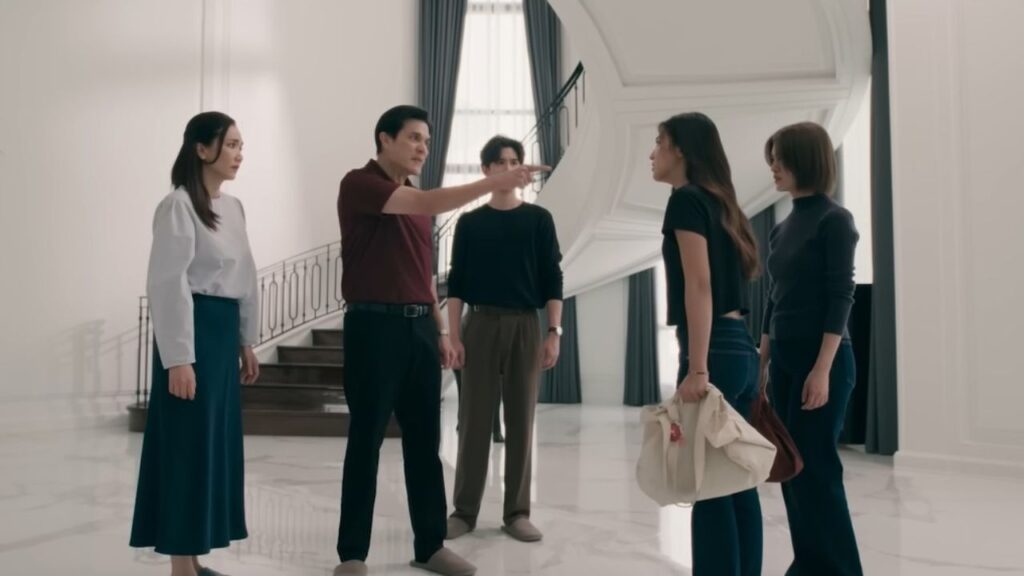
Dokrak: The Youngest, the Wisest, the Bravest
Age does not always equal maturity. In fact, clarity often comes from the most unexpected places, and in US, that place is Dokrak.
Although she is the youngest in the group, she quickly becomes the emotional anchor of the story. Quiet but never absent, soft-spoken yet undeniably strong, she grounds the series without needing to dominate a single scene.
Rather than shouting to be heard, she chooses to listen. When she does speak, her words offer something sincere and grounding. It is not just the characters who find comfort in her presence, but we as viewers do as well. There is a gentle kind of wisdom in Dokrak that feels rare, not only in Thai GL dramas but in storytelling as a whole.
When her father tries to dictate her future, wanting her to become a doctor, she chooses something else. She chooses herself. Leaving home at a young age is never easy, especially when it means going against your family’s expectations.
But Dokrak‘s courage lies in her ability to act despite fear. She shows us that being brave doesn’t mean you’re not scared. It means doing what’s right for you, even if your voice trembles.
This decision becomes one of the early threads in the tapestry of queer healing in US. It reflects the complexity of growing into your identity in a world that often misunderstands or limits it.
Dokrak teaches us that emotional intelligence can exist outside of age, and that quiet conviction can reshape lives. In her stillness, there’s power. And in her journey, there’s a lesson about healing that resonates far beyond romance.
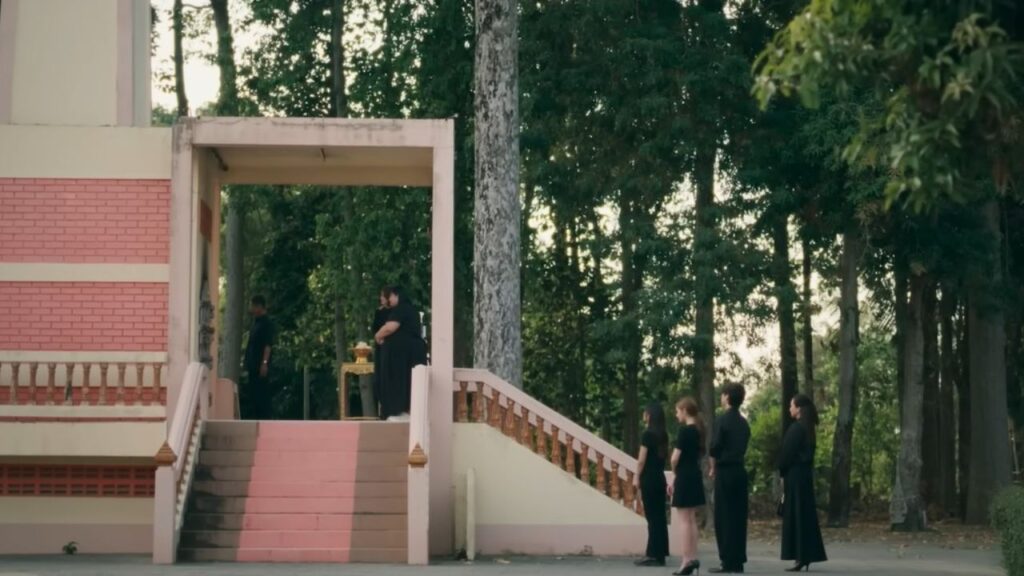
Grief doesn’t speak in a single voice. In US, it echoes differently through Pam, Nene, and Dokrak. While Pam retreats into quiet sorrow, Nene channels her pain into control, distance, and a thirst for revenge. She is painted as a villain but she is also a woman trying to make sense of her emptiness. Her rage is grief in disguise.
This complexity is one of the show’s greatest strengths. Instead of assigning blame, US offers emotional context. We are invited to understand rather than judge. Even when characters make poor decisions, their reasons are deeply human. In Nene’s case, grief has no soft edges. It is sharp, cold, and isolating.
Then, in a moment that feels both simple and profound, Dokrak’s mother says: “Sometimes, farewells aren’t all sadness.” It is a line that reshapes the emotional landscape of the story. A reminder that loss doesn’t always have to feel like absence. Sometimes, it also creates space for growth, reflection, even peace.
This is a powerful thread in the fabric of queer healing in US. Healing doesn’t mean pretending nothing happened. It means recognizing pain without letting it define you. The show proposes that healing can include joy, even in the shadow of goodbye.
Through this lens, US becomes more than a GL romance. It becomes a story about how people carry pain, how they let it go, and how they slowly make room for something else. Something softer. Something that feels like home.
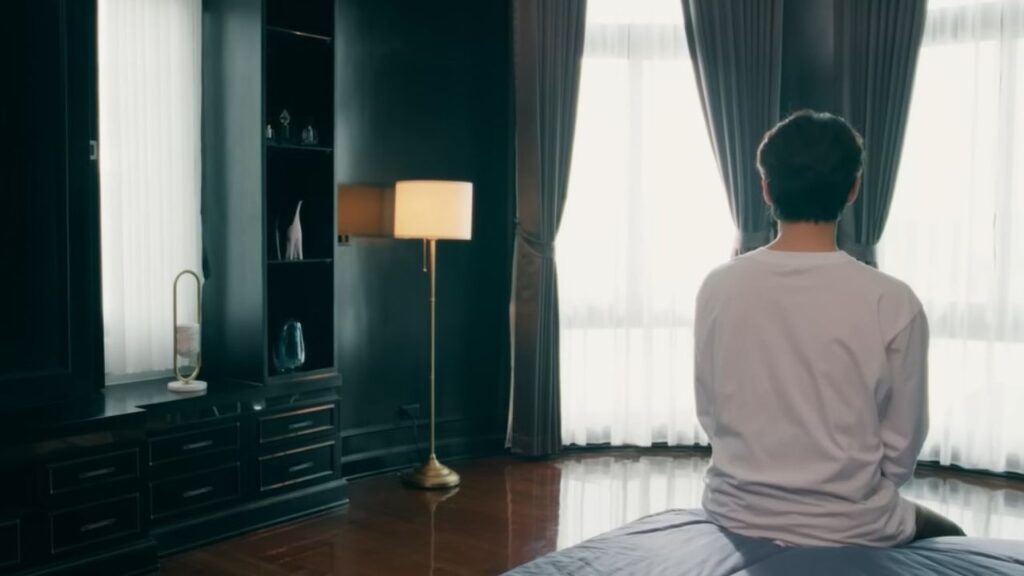
The House That Shaped Them: Family, Trauma, and Identity
In US, family is not a static backdrop. It is a living, breathing force that shapes each character’s identity. The series does not simplify trauma, it examines it, layer by layer, through three siblings who grew up under the same roof but learned to survive in entirely different ways.
Kawi, the eldest, absorbs the full weight of parental expectations. His father demands excellence without offering emotional safety, and the result is a mental breakdown. Kawi is not weak. He is overwhelmed. And US does not treat his struggle as a subplot. It becomes a mirror reflecting how toxic parenting can fracture even the most well-intentioned people.
Nene responds differently. Her grief and emotional neglect morph into control and resentment. Her desire for revenge is not evil, it is the only language she feels she can speak in a world that never gave her another. In her, we see how unprocessed pain can turn inward and outward at once.
Then there is Dokrak. The youngest, yet the most emotionally grounded. She chooses not to become what her environment demands. Her refusal to follow the path carved by her father is an act of rebellion, but also one of hope. She embodies queer healing in US through her decisions, her empathy, and her belief in connection over control.
Together, these siblings reveal how a home can wound and teach at the same time. And how, even within the same walls, healing can look radically different for each person.

A Rare Kind of Thai GL: No Toxicity, No Tropes, Just Truth
Forget the usual formula of breakups and sudden reconciliations. US rewrites the script entirely. Instead of leaning on overused tropes, it offers something far more powerful: emotional realism.
There is no absurd twist, no last-minute betrayal, no overdramatized fight. The plot flows like life itself, unpredictable in quiet ways. We do not see many characters manipulated for the sake of conflict.
Even those with darker motives are treated with empathy. The so-called antagonist is not an evil archetype but a deeply human character, shaped by her past. That kind of character development is rare, especially in Thai GL.
And perhaps most unexpectedly, there is no breakup between the main leads. Not once do Pam and Dokrak fall into the trap of misunderstanding or miscommunication just to create tension.
Instead, we watch two people grow into love with gentleness, honesty, and vulnerability. The result is a portrayal of healthy queer love that feels radical in its simplicity.
At the core of US lies the heart of queer healing. The story is not about perfect characters. Instead, it focuses on people making thoughtful choices, confronting their pain, and opting for connection without needing to tear each other down first. Through this, the series reveals that love can be both challenging and gentle at the same time.
By refusing to sensationalize trauma, US does something revolutionary. It reminds us that healing is not always loud. Sometimes, it looks like a steady hand, a quiet word, or simply staying. And sometimes, that is everything.

Terak Is More Than Romance — It’s Family, It’s Healing, It’s Choice
In US, terak is not a word reserved for lovers. It is a feeling, a decision, a quiet form of loyalty that transcends romance. The series gently expands our understanding of love by showing that its most enduring forms are often the least dramatic.
Pam carries the weight of grief for most of the series. Her parents are gone, but her pain remains close. She walks through life with restraint, convinced that carrying her sadness alone is a kind of strength.
But through Dokrak’s presence, her consistency, her softness, Pam begins to understand that healing does not mean forgetting. It means allowing someone to sit with you in the silence. That is where we see the most intimate kind of queer healing in US.
Dokrak never demands anything in return. Her love is not built on expectations or timelines. She remains, listens, and encourages Pam to feel without shame. That is terak. A form of emotional maturity we rarely see portrayed with such clarity.
Even in her family, Dokrak redefines love. By leaving home, by choosing a different life than the one her father imposed, she sends a message: that authenticity is a kind of love too. Choosing yourself, even when it disappoints others, is an act of faith in what love should be.
In this world, terak becomes more than just a nickname or a label. It becomes a space for queer love, for growth, for forgiveness. And it becomes a choice we make every day.

Why US Deserves Better: A Hidden Gem That Heals
In a world flooded with predictable romances, US chooses to be subtle instead. Rather than shouting for attention, it gently whispers truths that linger long after the final scene ends. Through sincerity rather than spectacle, the series offers a unique form of queer healing.
This series isn’t just underrated, it’s underpromoted. While shows with exaggerated plot twists and unnecessary intimacy scenes dominate the conversation, US quietly builds something rare: emotional resonance. Its value is not in how loud it is, but in how deeply it listens to the pain and softness of being human.
Every element feels intentional. The writing is thoughtful, the pacing calm, the characters multidimensional. It respects its audience’s intelligence, offering nuance instead of noise. That in itself is revolutionary in the current landscape of Thai GL dramas.
And yet, US slipped under the radar. It didn’t trend endlessly. It didn’t generate loud fandom wars. But maybe that’s also why it works. It remains unpolished in the best way: real, relatable, and profoundly healing.
US teaches us that queer stories don’t need to be loud to be important. They can be gentle, and still powerful. They can speak softly, and still echo.
This is why US matters. Because it proves that GL stories can explore grief, family dynamics, mental health, and still give us a love story that feels earned.
The kind of love that holds space. The kind that doesn’t need to be loud to be life-changing.
That is the quiet brilliance of the queer healing in US.

The Kind of Series That Leaves You Better
Some stories entertain. Others stay with you. US is the kind of series that lingers not through dramatic twists, but through its deep emotional truth. It explores what happens when we allow ourselves to be vulnerable, and when someone meets that vulnerability with presence instead of pressure. This is the essence of queer healing in US.
At its heart, the series is about grief, not as something to conquer, but as something we learn to live with. Every character in US carries invisible weight, and instead of rushing to solve their pain, the story gives space for it to exist.
In a media landscape obsessed with fast pacing and easy resolutions, US moves slowly, intentionally. And that’s where its magic lies.
It’s rare to see a Thai GL drama offer such a mature portrayal of queer love. There’s no forced separation, no unrealistic reunion in the final five minutes. Just people learning to communicate, to forgive, to grow. And as viewers, we grow with them.
By the final episode, you’re not left wishing for more. You’re left feeling full, softened, and maybe even a little more hopeful. Because US does not promise a perfect world. It simply reminds you that healing is possible when someone sees you fully and stays anyway.
For those seeking representation, softness, and something that truly respects the complexity of human emotions, this series delivers. US is more than a show. It’s a quiet revolution.
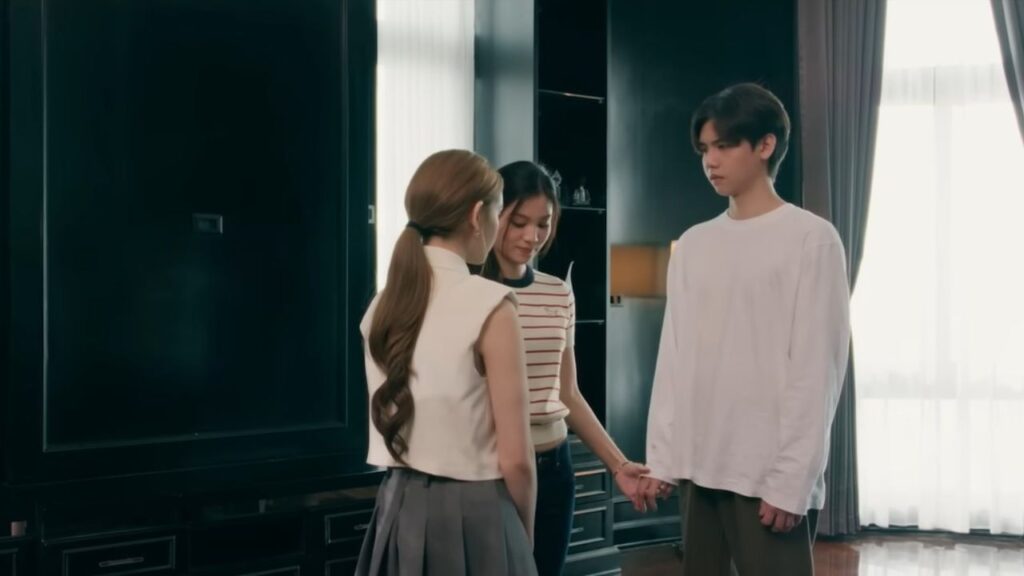
Why US Is a Must-Watch for Queer Healing in US
US isn’t just another GL series to add to your watchlist. It is a thoughtful exploration of family, love, and resilience that challenges typical tropes. Through the lens of sibling bonds, grief, and unrequited love, the show offers a fresh perspective on healing that is both honest and hopeful.
The way the characters navigate their personal struggles, whether it’s Dokrak’s quiet strength, Kawi’s mental health challenges, or Pam’s journey through loss, reminds us that healing doesn’t have to be loud or fast. It’s messy, nuanced, and deeply human. And sometimes, it’s simply about choosing connection over isolation.
For fans of Thai GL dramas looking for a series that respects emotional complexity and rejects cliché, US stands out as a rare gem. Its realistic portrayal of relationships and mental health offers something truly valuable in today’s entertainment landscape: a space for reflection and understanding.
If you’re curious about stories that combine psychological depth with gentle romance, this series deserves your attention. Dive in, and allow yourself to experience the subtle power of US.
Because queer healing is a journey, and every story helps us take the next step.

Featured image: Promotional still courtesy of GMMTV



